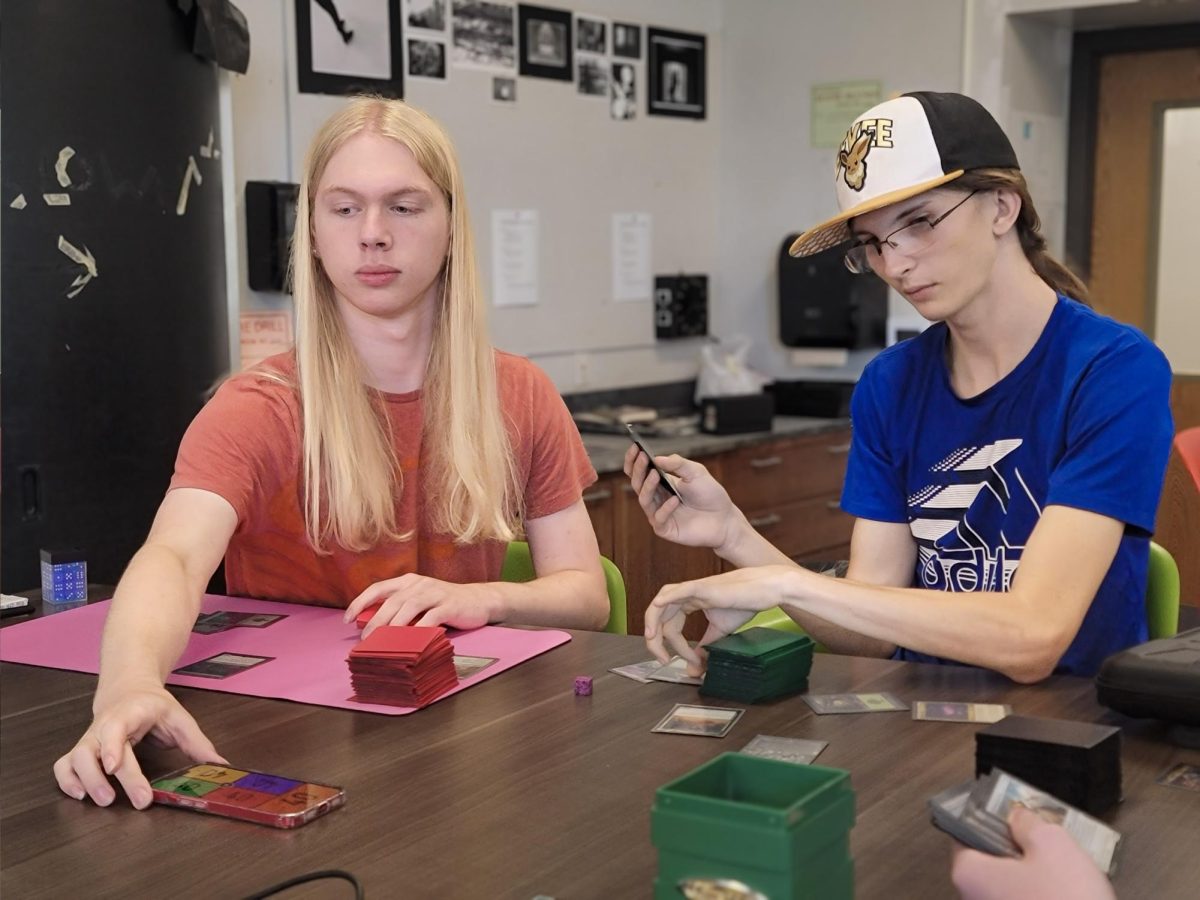It was a bitter cold December day, only 36 degrees out. Dozens of teachers gathered outside the Balas building at Domino’s Farm, picketing as they waited for the board of education meeting to begin. Among them was Laura Carlin, who felt the anger and power vibrating through the crowd. The frigid air was filled with rage and anticipation. As the meeting started, Ann Arbor Public School’s teachers flooded into the building, packing it wall to wall, ready to demand a voice in shaping their livelihoods.
“We weren’t just standing in the cold; we were standing up for our dignity, for our students, and for our families,” Carlin said. “This isn’t just about money—it’s about being respected for the work we do.”
For the past 27 years, Carlin has been teaching first grade at Wines Elementary. She always advocated for herself and her colleagues, believing that every teacher should be paid enough money to focus on student’s education rather than financial distress.
Both of Carlin’s children are currently enrolled in the district. She lives in her grandmother’s house but explains that had she not inherited it, she wouldn’t be able to afford living in Ann Arbor. Having grown up there and taught for more than two decades, Carlin has a deep connection to the local community which is why she hasn’t considered switching districts.
“I love where I teach,” Carlin said.“I love the people I teach with, and I love the families that I work with. I want to teach the kids. I want to see them find joy in learning and be the best that they can be.”
Teaching is Carlin’s passion, yet it is becoming increasingly difficult for her to meet financial demands—both as a teacher and a mother of two. To make ends meet, Carlin took on a second job at Target. Juggling both her jobs has left her with less time for personal care, household chores and, most importantly, spending time with her children.
“Sometimes I come home so exhausted that I can’t even help my kids with their homework,” Carlin said. “It breaks my heart because I feel like I’m letting them down.”
Noting that many teachers have to spend their own money on supplies, Carlin often cries out for better classroom resources. She believes the education system must recognize the full needs of teachers to support their students effectively.
Throughout her 27 years of teaching, Carlin felt underpaid. When Carlin was hired, her contract promised 12 increases—known as “steps”— based on her teaching qualifications and experience. Each step would increase Carlin’s salary by 2%, which is approximately 3,700 dollars, depending on her degree of education and the step she’s on.
While steps are anticipated, their timing isn’t guaranteed. Therefore, steps are more of a hopeful assumption for Carlin and her colleagues rather than a promise.
Carlin’s salary plateaued at her ninth step, and she received her last raise 16 years ago. Back then, she was childless, lived in a condominium and dealt with a lower inflation rate of 47.06%. Though the concept of steps initially sounded promising, Carlin now finds it to be rather frustrating. She has lived off of the same salary today as she did more than a decade ago, despite all the changes in the economy and her life.
“We’re not asking for luxury—we’re asking for fairness,” Carlin said. “Our students deserve teachers who aren’t distracted by financial stress.”
The latest strain on Carlin’s budget came from a hike in insurance rates for teachers. Before the surge, Carlin paid almost $400 per month for healthcare premiums. Since then, her fees have increased dramatically, rising more than twice as high. The $800 per month is a sharp increase that left Carlin feeling thwarted and lost.
“I have colleagues who are in their first or second year of teaching and they cannot afford insurance, ” Carlin stated. “So either they pay rent and buy food, or they pay for health care. It’s an impossible choice for many of us, and it’s not fair that we have to make it.”
Carlin believes that teachers have a profound impact on their students—not just by academically educating them, but also by providing students with a safe and supportive environment. She feels that a teacher’s influence can determine a student’s outlook on things for the rest of their life; it’s a big responsibility for Carlin to hold.
“It’s not just the curriculum, but it’s the rapport that we have with them,” Carlin said. “Teachers can make or break a child’s experience in school and in life.”
Carlin is deeply passionate about teaching and will always try her best to educate her students to the best of her ability. She works to build an environment that facilitates learning and growth, but without financial security, Carlin is unable to utilize her full potential. Carlin will continue to advocate not just for her and her colleagues but for the students as well.
“If we want our kids to succeed, we need to ensure that their teachers are supported—emotionally, physically, and financially,” Carlin said. “It’s not just about a paycheck; it’s about creating a system where teachers can thrive—so that our kids can too.”
Despite the challenges, Carlin remains hopeful that continued advocacy will bring about the change needed for both teachers and students.











